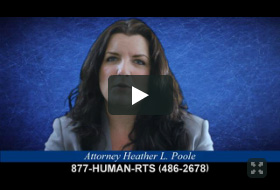Know Your Rights
As an immigrant or noncitizen, what rights do I have?
Whether or not you’re a citizen, you have these constitutional rights:
- The Right to Remain Silent.
- The Right to be Free from “Unreasonable Searches and Seizures.”
- The Right to Advocate for Change. The First Amendment to the U.S. Constitution protects the rights of groups and individuals who advocate changes in laws, government practices, and even the form of government. However, the INS can target non-citizens for deportation because of their First Amendment activities, as long as it could deport them for other reasons.
CONSTITUTIONAL RIGHTS CANNOT BE SUSPENDED EVEN DURING A STATE OF EMERGENCY OR WARTIME— AND THEY HAVE NOT BEEN SUSPENDED BY THE
“USA PATRIOT ACT” OR OTHER RECENT LEGISLATION !
What if the police or FBI contacts me? What if agents come to question me?
YOU DO NOT HAVE TO TALK TO THE POLICE, FBI, INS, OR ANY OTHER LAW ENFORCEMENT AGENT OR INVESTIGATOR. You can’t lawfully be arrested for refusing to identify yourself on the street, although this may make the police suspicious, and police and other agents do not always follow the law. If you are driving a vehicle, you must show your license and registration.
Otherwise, you do not have to talk to anyone: on the street, at your home or office, if you’ve been arrested, or even if you’re in jail. Only a judge has the legal authority to order you to answer questions.
Do I need a lawyer?
IF YOU ARE CONTACTED, TELL THE AGENT YOU WANT TO TALK TO A LAWYER. Once you say this, they should stop trying to question you and should make any further contact through your lawyer. You have the right to say that you want to talk to a lawyer even if you do not already have one. Remember to get the name, agency, and telephone number of any investigator who calls or visits you, and call the NLG, or a criminal or immigration lawyer, before deciding whether to answer questions. If you do agree to be interviewed, you have the right to have a lawyer present. The government does not have to provide you with a free lawyer unless you are charged with a crime, but the NLG or another organization may be able to find you a lawyer for free or a reduced rate.
If I refuse to answer questions or if I say I want a lawyer, won’t it seem like I have something to hide?
TALKING TO THE FBI OR OTHER AGENTS CAN BE DANGEROUS. You can never tell how a seemingly harmless bit of information might be used to hurt you or someone else. That is why the right not to talk is a fundamental right under our Constitution. The FBI is not just trying to find terrorists, but is gathering information on immigrants and activists who have done nothing wrong. And keep in mind that even though they are allowed to and do lie to you, lying to a federal agent is a crime. The safest things to say are “I am going to remain silent,” “I want to speak to my lawyer,” and “I do not consent to a search.”
Can agents search my home, apartment or office?
YOU DO NOT HAVE TO LET POLICE OR OTHER LAW ENFORCEMENT AGENTS INTO YOUR HOME OR OFFICE UNLESS THEY HAVE A SEARCH WARRANT.
What if I am not a citizen and the INS contacts me?
Assert your rights. If you do not demand your rights or if you sign papers waiving your rights, the INS may deport you before you see a lawyer or an immigration judge. Talk to a lawyer.
Excerpts taken with permission from brochure entitled, “Know Your Rights” published by the National Lawyers Guild (www.nlg.org). For more information on their immigration section, visit www.nationalimmigrationproject.org.






